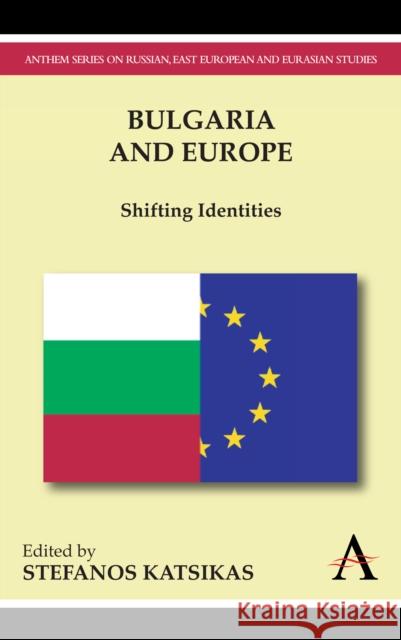Bulgaria and Europe: Shifting Identities » książka
Bulgaria and Europe: Shifting Identities
ISBN-13: 9781843318460 / Angielski / Twarda / 2010 / 270 str.
Bulgaria and Europe: Shifting Identities
ISBN-13: 9781843318460 / Angielski / Twarda / 2010 / 270 str.
(netto: 345,80 VAT: 5%)
Najniższa cena z 30 dni: 356,48
ok. 30 dni roboczych.
Darmowa dostawa!
'Bulgaria and Europe: Shifting Identities' offers an in-depth analysis of Bulgaria's relationship with the European continent. These essays examine how Bulgarian historiography and literature over the centuries have created differing conceptions of Europe and, in the process, shaped the country's own shifting identity. Through such analyses, the essays provide the broader cultural context and historical perspective required in order to understand the country's EU accession process as well as its aftermath. This work ultimately addresses what has arguably been the key question facing Bulgaria in the post-Cold War period: 'Are we European?' This preoccupation with the question of Bulgaria's European identity stems in part from the prospect of joining the EU and thus becoming part of Europe's mainstream, and equally from the wider political, economic and security vacuum in which the dissolution of the Communist bloc left the country at the beginning of the 1990s. The collection will therefore also examine Bulgaria's process of integration into the EU within the context of contemporary political and economic developments, raising questions about the costs that Bulgarians have incurred in order to join European structures. 'Bulgaria and Europe: ShiftingIdentities' charts the country's attempts to confront a problematic present while it struggles to escape from the past and its legacy of fears. 'Bulgaria and Europe' breaks new ground as the only published study to discuss the way that 'Europe' has been conceptualized within Bulgaria and how this has affected the relations between them. It is therefore the first analysis that focuses on the issue of Bulgarian national identity, how this identity has developed in relation to Europe and the way in which such a development has affected Bulgaria's relations with the European continent, including post-Cold War relations with the EU. This volume also represents an important addition to the limited amount of literature on Bulgaria available in the English language.











